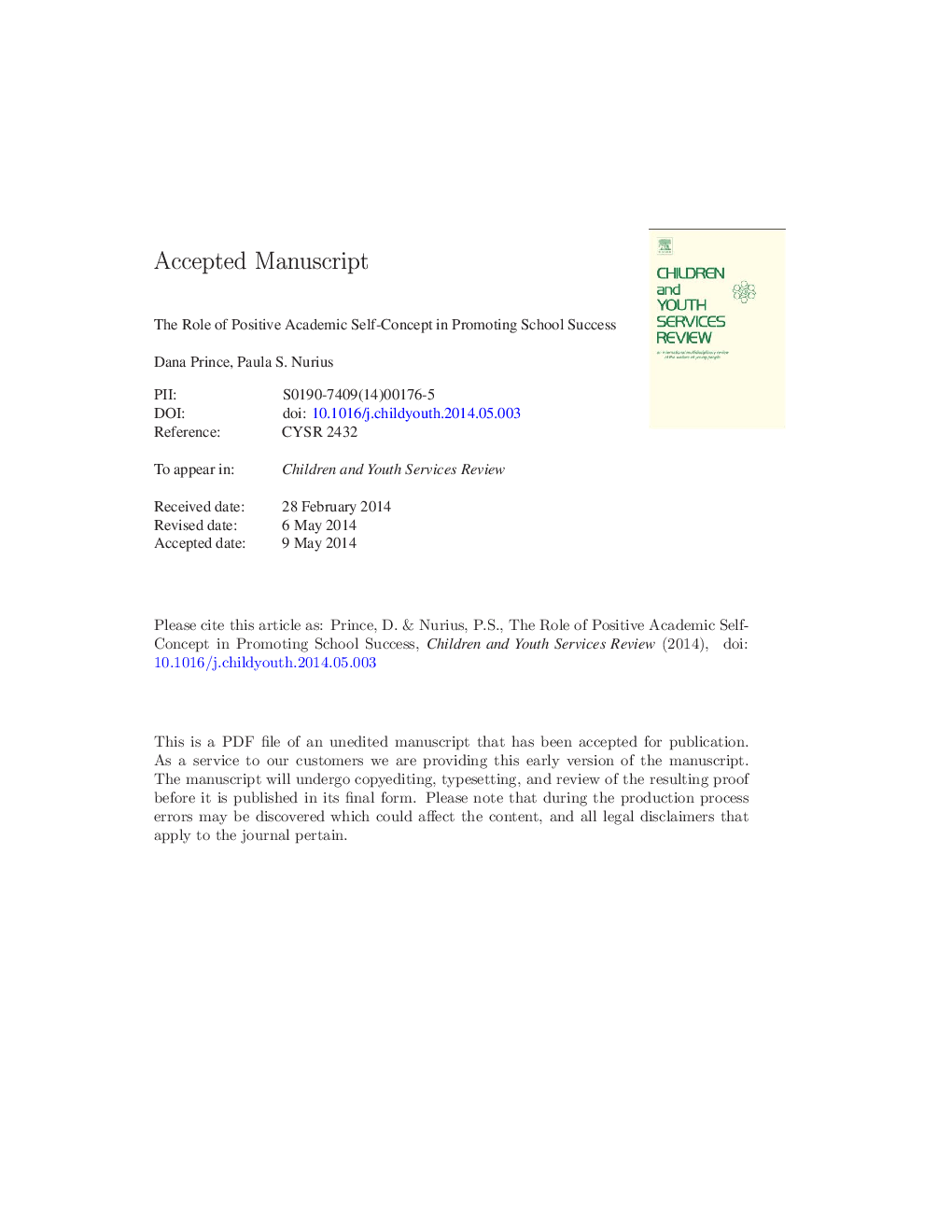| Article ID | Journal | Published Year | Pages | File Type |
|---|---|---|---|---|
| 6834312 | Children and Youth Services Review | 2014 | 33 Pages |
Abstract
Identity research argues for enhancing students' current and future positive academic self-concepts to strengthen educational success. However, multiple factors from youths' home and school ecologies, as well as structural disadvantage, influence this relationship. Using the data from the Beyond High School Study (NÂ =Â 9658), this analysis examines the role of academic self-concept in predicting school success over and above co-occurring contributors. The effects of positive academic self-concept on future educational aspirations, accessing educational guidance counseling, and student GPA were tested using stepped linear regression, controlling for student socio-demographics, school environment factors, and parental support. Results confirmed hypotheses for each academic indicator, with positive academic self-concept demonstrating the strongest coefficient. Implications for school-based intervention are discussed, linking to social psychological literature on future-oriented self-cognitions and strengthening motivational and regulatory function, particularly among youth facing systemic challenges.
Related Topics
Health Sciences
Medicine and Dentistry
Perinatology, Pediatrics and Child Health
Authors
Dana Prince, Paula S. Nurius,
